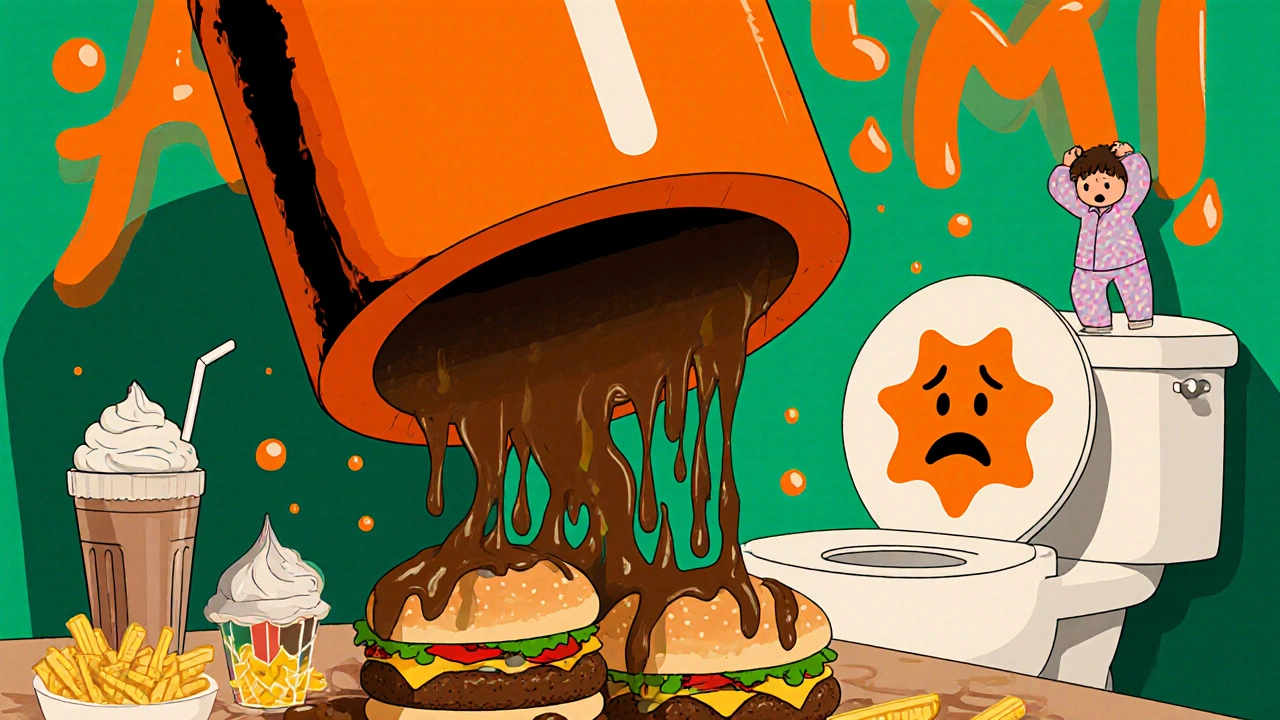Fat Blocker: How They Work, What Works, and What to Avoid
When you hear fat blocker, a type of weight loss supplement designed to prevent dietary fat from being absorbed by the body. Also known as fat binder, it works by interrupting the digestion of fats in your gut—so instead of being stored, they pass through you. That sounds simple, but not all fat blockers are created equal. The only one backed by solid clinical data is orlistat, a prescription and over-the-counter drug that inhibits pancreatic lipase, the enzyme that breaks down fat. It’s the active ingredient in Xenical and Alli. Other products claiming to be fat blockers—like chitosan, green tea extracts, or fiber blends—lack strong evidence. Many are just expensive placebo pills with vague marketing claims.
How does orlistat actually work? When you eat a meal with fat, your body uses lipase to chop it into smaller pieces so it can be absorbed. Orlistat blocks about 25% of that fat from being broken down. The undigested fat exits your body through bowel movements. That’s why people on orlistat often report oily stools, frequent bathroom trips, or gas with discharge. It’s not glamorous, but it’s real. Studies show people using orlistat with a low-fat diet lose about 3-5% more weight over a year than those on diet alone. That’s not magic—it’s physics. If you don’t absorb the fat, you don’t store it.
But here’s the catch: fat blockers don’t work if you keep eating junk food. If you’re downing fried chicken, buttery pasta, or cream-filled desserts, you’re asking for uncomfortable side effects. The best results come when you pair orlistat with a balanced diet—lean protein, veggies, whole grains, and healthy fats in moderation. It’s not a shortcut. It’s a tool that forces you to pay attention to what you eat. And it’s not for everyone. People with gallbladder issues, chronic malabsorption, or eating disorders should avoid it. Pregnant women? Skip it. Always talk to your doctor first.
There’s a reason you won’t find a single post here about chitosan or Garcinia cambogia as a fat blocker—because they don’t deliver. The posts you’ll see below focus on real, science-backed approaches: how orlistat compares to other weight-loss drugs, what happens when you stop taking it, how it affects nutrient absorption, and why some people see results while others don’t. You’ll also find comparisons with other weight management tools, from GLP-1 agonists to lifestyle changes that actually stick. This isn’t about quick fixes. It’s about understanding what works, what doesn’t, and how to make smart choices when your health is on the line.
Compare Alli (Orlistat) with Weight Loss Alternatives
Compare Alli (Orlistat) with modern weight loss alternatives like Wegovy, Saxenda, PhenQ, and lifestyle changes. See which options actually work in 2025, their side effects, costs, and real results.
